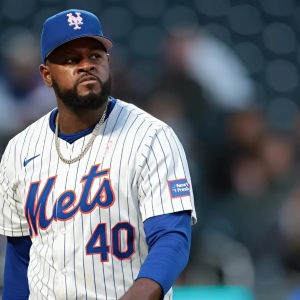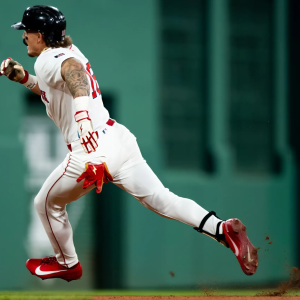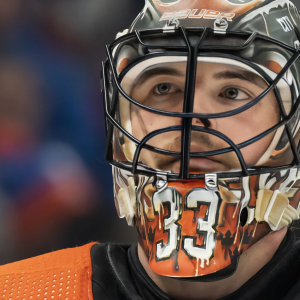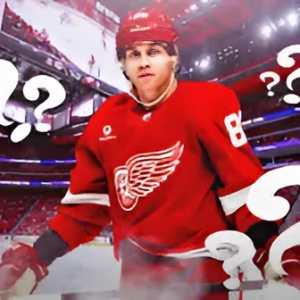More than just singular slump, these five MLB teams are seeing poor offensive output from anyone given an opportunity.
For better or worse, the wins above replacement statistic (more commonly referred to as WAR) has changed the way we view MLB players forever. WAR attempts to boil down a player’s contributions to a single number, determining how many more wins that player is worth to their team than a replacement-level player. Or in other words, a player with the minimum skillset to qualify as a big-leaguer at their position.
WAR can be difficult to use in debates like MVP voting and Hall of Fame selections because not only are there two different methods of calculating it – fWAR and bWAR, for FanGraphs and Baseball Reference -, but it can ignore context as to why some players score higher than others. But one thing is for certain, being in the negatives is always a bad thing. And if a whole position group is in the negatives for a given team, that team is going to suffer in a big way.
That’s why we’re going to rank the five positions on five different MLB teams that are absolutely murdering their squads in the win column. We’ll be using fWAR, simply because it has a tool to add up the WAR per position for all 30 teams. We’ll rank them from fifth-worst to worst. Not solely in terms of the biggest negative number, but also in context relative to the rest of the competition at that position.
5. Miami Marlins catchers
fWAR: -0.9, last among catchers
The catching position for the Miami Marlins is emblematic of a total failure by the front office, likely aided and abetted by reluctance to spend from ownership, to find any help at what was an obvious position of need.
After Miami’s catchers slashed .200/.272/.298 a season ago, new president of baseball operations Peter Bendix said the team was looking to make multiple additions at the position.
Instead, they added just one in Christian Bethancourt. He came from the Tampa Bay Rays, where Bendix had previously been working, to pair with returnee Nick Fortes. And in the new season, the two are slashing .124/.161/.175, adding up to a hilariously bad -5 wRC+.
It’s almost impossible to be that bad at hitting and stay on a MLB roster. The Marlins would be better off putting a crash test dummy in the batter’s box and hoping for walks. Yet they seem perfectly content to let Bethancourt and Fortes keep splitting time as they tank the rest of this season and look toward the future. It’s a self-fulfilling prophecy–a team refusing to fix an obvious flaw will get the worst possible results.
4. Miami Marlins first basemen
fWAR: -1.5, 29th among first basemen
It’s rather symbolic of just how horrific this Marlins season has been that we’re talking about them twice before any mention of another MLB team. First base, because it is such an offense-first position, is a tough spot to put up huge WAR in a positive direction. But you can certainly cost your team a lot of WAR by not hitting, which the Marlins are finding out firsthand in 2024.
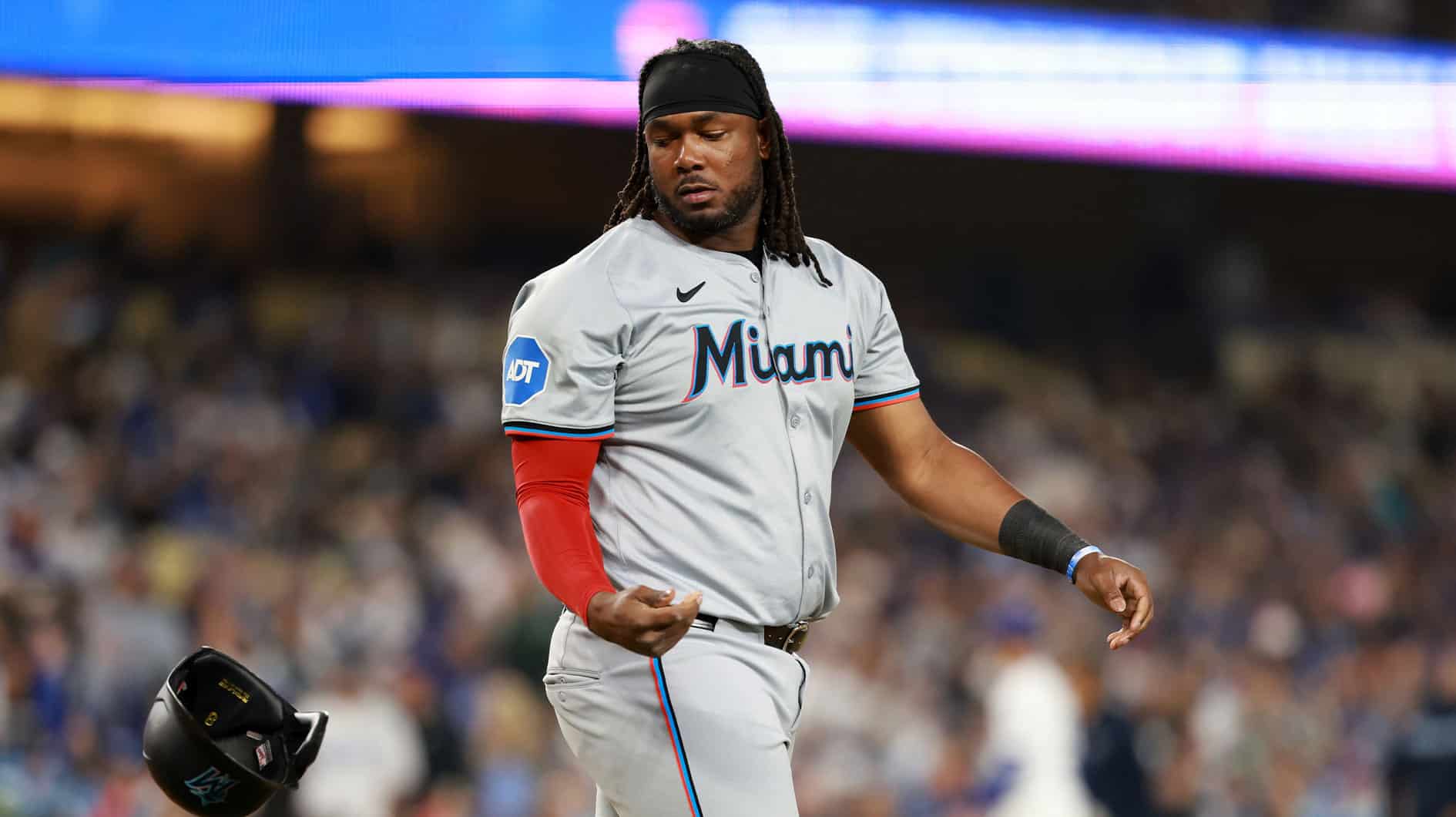
The Fish traded for Josh Bell to solidify first base for them at the 2023 trade deadline, and he generally did a good job of that in 2023. But this season, Bell has been a disaster and Miami has to be worried they won’t even be able to get much when they sell him off again at the trade deadline. Bell has just a .638 OPS and -3 outs above average defensively, making him one of the five worst at the position on both sides of the ball.
3. Chicago White Sox left fielders
fWAR: -1.5, last among left fielders
The Andrew Benintendi contract continues to be one of the biggest blunders ever committed by the Chicago White Sox, still less than two years into the deal. Chicago gave Benintendi five years, $75 million, the biggest contract of any kind in franchise history. His awful performance has been the ultimate “you get what you pay for” reminder, showcasing the White Sox as both generational cheapskates and bad talent evaluators.
Save for one glorious weekend against the Tampa Bay Rays, Benintendi has been one of the worst overall hitters in baseball. His .516 OPS ranks second-worst among all 166 qualified hitters in MLB. He’s also been a huge negative defensively, with -3 outs above average and bottom one percent throwing value. It’s stunning to see how much Benintendi’s career has derailed since his early days in Boston and it’s a brutal reflection on Chicago that they’re forced to put him back out there night after night.
2. Colorado Rockies first basemen
fWAR: -1.7, last among first basemen
After the way Kris Bryant’s first two seasons in Denver went, it’s hard to call it a surprise that moving him to first base has resulted poorly for the Colorado Rockies. Bryant was playing poorly, then Bryant got hurt, and ever since the Rockies have continually failed to find a replacement.
Rockies first basemen have the second-worst wRC+ at 47 and the fourth-worst defensive run value in MLB at -7.3. Combine all that and you have a recipe for disaster no matter whose name manager Bud Black writes on the lineup card. Whether it’s been Bryant, Elehuris Montero or Michael Toglia, it’s been nothing but a barrage of strikeouts and weak contact. For an offensive position at the best hitter’s park in the league, that won’t do you any good at the game’s highest level.
1. Boston Red Sox second basemen
fWAR: -2.2, last among all positions
This is a catastrophe of epic proportions. The Red Sox have tried everything at second base this season and not a single player has worked out there. First it was Enmanuel Valdez. We saw brief cameos from Pablo Reyes, Romy Gonzalez and even Zack Short. And now Vaughn Grissom, the presumptive second baseman of the future, has arrived only to bat .146 in his first 41 at-bats.

It’s almost comical how bad this particular group of Sox has been at the plate. They’re slashing .166/.205/.235 for a 19 WRC+, meaning they’re 81% worse than the average contributions of a big-league second baseman as a hitter. And to top it off, they’re also providing the second-worst defensive value, ahead of only the Miami Marlins.
Not only have Red Sox second basemen put up the worst fWAR of any position for any team, but the difference between them and the second-worst group of MLB second basemen (Colorado Rockies) is -1.8 fWAR, which is more than any other position has cost any other team. They’re lapping the league right now and unless Grissom can get things going soon, the Sox are going to permanently squander any momentum they built from their pitching-fueled hot start to the season.
